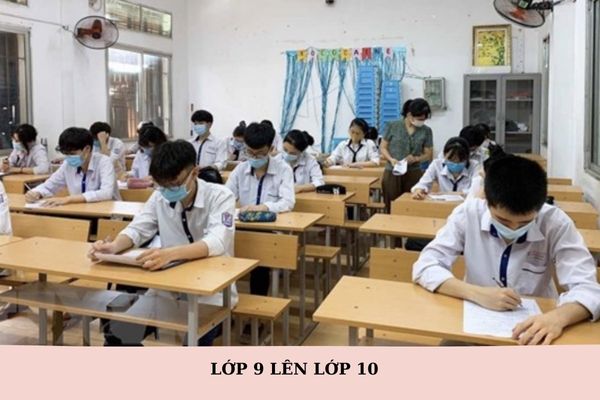What are regulations on degree of compatibility between the Vietnamese Language Competency Framework and the Common European Framework of Reference in Vietnam?
What are regulations on degree of compatibility between the Vietnamese Language Competency Framework and the Common European Framework of Reference in Vietnam? What are contents of Vietnam Foreign Language Competency Framework? What are regulations on eligibility requirements for proficiency based on the 6-level Foreign Language Competency Framework for Vietnam?
Please advise. Thankyou.
What are regulations on degree of compatibility between the Vietnamese Language Competency Framework and the Common European Framework of Reference in Vietnam?
In Section III of the 6-level Foreign Language Competency Framework for Vietnam, issued together with Circular 01/2014/TT-BGDĐT, stipulating degree of compatibility between the Vietnamese Language Competency Framework and the Common European Framework of Reference, such as:
Vietnamese Language Competency Framework was developed on the basis of reference, application of Common European Framework of Reference and some English proficiency frameworks of other countries, combined with the actual situation and conditions of teaching, learning and using foreign languages in Vietnam. Vietnamese Language Competency Framework is divided into 3 levels (Elementary, Intermediate and Advanced) and 6 levels (from Level 1 to Level 6 and compatible with levels from A1 to C2 in Common European Framework of Reference). As follows:
Vietnamese Language Competency Framework
Common European Framework of Reference
Primary
Level 1
A1
Level 2
A2
Intermediate
Level 3
B1
Level 4
B2
High-class
Level 5
C1
Grade 6
C2
What are contents of Vietnam Foreign Language Competency Framework?
In Subsection 1, Section IV, the 6-level Foreign Language Competency Framework for Vietnam, issued together with Circular 01/2014/TT-BGDĐT, stipulates contents of Vietnam Foreign Language Competency Framework as follows:
1. General Description
Steps
General Description
Primary
Level 1
Can understand and use familiar everyday structures; basic words that meet specific communication needs. Can introduce themselves and others; can answer information about themselves such as place of residence, relatives/friends etc. Can communicate simply if the interlocutor speaks slowly, clearly and is willing to cooperate and help.
Level 2
Can understand frequently used sentences and structures related to basic communication needs (e.g., information about family, self, shopping, asking for directions, job). Can exchange information on simple, familiar everyday topics. Can give simple descriptions of self, surroundings, and basic needs.
Intermediate
Level 3
Can understand the main ideas of a clear, standard passage or speech on familiar topics in work, school, leisure, etc. Can handle most situations that arise when visiting an area where that language is spoken. Can write simple passages related to familiar topics or of personal interest. Can describe experiences, events, dreams, hopes and ambitions, and can briefly state reasons, explanations for opinions and plans.
Level 4
Can understand the main ideas of a complex text on both concrete and abstract topics, including technical exchanges in his or her area of expertise. Can communicate at a fluent, natural level with native speakers. Can write clear, detailed texts on a variety of topics and can explain his or her point of view on an issue, highlighting the advantages and disadvantages of different options.
High-class
Level 5
Can understand and recognize the implications of long and broad texts. Can express themselves fluently, immediately, without difficulty in finding words. Can use language flexibly and effectively for social, academic, and professional purposes. Can write clearly, concisely, and in detail on complex topics, demonstrate the ability to organize text, make good use of conjunctions and linking tools.
Level 6
Can understand most spoken and written texts with ease. Can summarize spoken or written sources of information, rearrange information, and present it logically. Can express themselves instantly, very fluently and accurately, distinguishing between subtle meanings in complex situations.
What are regulations on eligibility requirements for proficiency based on the 6-level Foreign Language Competency Framework for Vietnam?
In Subsection 4.2, Section IV, Continuing Education Program on Practical English, promulgated together with Circular No. 28/2021/TT-BGDĐT, stipulating eligibility requirements for proficiency based on the 6-level Foreign Language Competency Framework for Vietnam are as follows:
4.2. Eligibility requirements for proficiency
The specific proficiency to be achieved for learners is described by each level and by the four communication skills: Listening, Speaking, Reading and Writing based on the 6Vietnam's language proficiency framework.
Listening
Speaking
Reading
Writing
Level 1
- Follow and understand speech (commands, instructions, utterances, simple conversations) when they are articulated slowly, clearly, with pauses to acquire and process information.
- Make statements and ask and answer simple questions related to very familiar topics such as yourself, family, work, place of residence or minimum daily communication needs;
- Describe someone, where they live and what they do;
- Ask and answer simple questions, initiate and respond to simple commands in areas of interest and on familiar topics;
- Perform transactions on goods and services in a simple way, deal with numbers, volumes, costs and time;
- Can use the most simple polite words and expressions on a daily basis, including: greetings, introductions, saying please, thank you, sorry,...
- Understand very short and simple texts about learned topics such as yourself, family, work, friends;
- Recognize proper names, familiar words, and the most basic phrases on simple notes, often encountered in everyday communication situations;
- Follow short, simple directions (e.g. go from X to Y).
- Write short phrases and sentences about yourself, your family, and your workplace;
- Request or provide personal information in writing;
- Write, respond to a postcard, fill out simple tables and forms, e.g. hotel registration forms; - Re-write single words or short texts presented in standard print format.
Level 2
- Understand phrases and expressions related to daily necessities (about family, yourself, shopping, place to live and work...) when they are articulated slowly and clearly;
- Understand the main ideas in familiar daily conversations and transactions when they are articulated slowly and clearly;
- Understand the topic others are discussing when they speak clearly and slowly;
- Understand and recognize some simple information presented on radio/TV when it relates to topics that are close to everyday life.
- Communicate (including asking, answering and exchanging ideas) simply and directly in short conversations on close topics and with the help of others when needed;
- Carry out simple communication such as describing, telling stories, making announcements...;
- Understand and participate in discussions, work in groups on simple topics: meeting, planning the weekend, giving suggestions...;
- Communicate their views and opinions in simple and concise social situations but cannot maintain conversations. For example: describing feelings and attitudes in a simple way and expressing agreement or disagreement with another person's opinion;
- Present a short topic on issues related to daily life, give reasons and answer some simple questions.
- Understand short, simple texts on familiar, specific topics expressed in familiar everyday language or words that appear with high frequency;
- Find specific and recognizable information from simple everyday documents such as advertisements, menus, schedules, lists...;
- Read and understand signs and daily notices in public places.
- Write simple clauses and sentences connected by conjunctions, e.g. “and”, “but”, “because” in simple, familiar topics;
- Write simple messages;
- Write and respond to simple personal messages;
- Write simple phrases and sentences using linking words like “and”, “but” and “because”;
- Write descriptions in familiar topics such as describing people, places, jobs or learning experiences.
Level 3
- Understand simple facts and information clearly articulated in a standard voice on topics related to daily life and work;
- Identify the main ideas in clearly presented speeches on common topics in life, work or school, including stories when they are articulated clearly in the common standard dialect;
- Listen and understand clearly spoken sets of instructions, notices or short messages;
- Grasp the main ideas of long discussions when the text is clearly spoken.
- Communicate with relative confidence on familiar issues related to their interests, studies and employment;
- Exchange, check and confirm information, explain and handle arising problems;
- Present opinions on cultural topics such as movies, books, music, ...;
- Participate in conversations on familiar topics without preparation, express personal views and exchange information on familiar topics related to personal interests, study, work or life daily.
- Read and understand texts containing clear information on topics related to their majors and fields of interest and interest;
- Read for gist, understand key words and important details from multiple parts of a simple text on common topics or informational passages in a variety of contexts;
- Skim for detailed information in prose readings, tables and schedules for analysis and comparison purposes;
- Collect and synthesize information from many parts of a document or from many different documents in order to accomplish a specific task;
- Can recognize the main points of a passage, even if it is not understood in detail.
- Write simple, cohesive texts on topics of familiarity or personal interest by connecting isolated groups into structured writing;
- Show good control over simple structures but still struggle with some complex ones; some expressions are not natural;
- Can write simple texts such as letters and short essays in a logical, coherent way, on familiar topics describing personal experiences, feelings, and reactions.
Level 4
- Listen to and understand live or replayed talks on familiar and unfamiliar topics in personal, social, academic or professional life when they are articulated clearly and in a standard voice;
- Understand the main ideas of complex speeches both in content and in language, articulate in standard language on concrete or abstract issues (including technical discussions, presentations) in their area of expertise;
- Identify the main ideas of long discussions when listening directly, provided the text is clearly spoken;
- Understand simple technical information and instructions. For example, how to operate and use the equipment on a daily basis.
- Communicate independently on many topics, have coherent arguments and structures, connect ideas in presentation, use words fluently and accurately;
- State the meaning of an event or personal experience, explaining and defending one's point of view clearly with coherent and appropriate reasoning;
- Exchange, check and authenticate information, handle rare situations in life and explain the causes;
- Give brief explanations for ideas, plans and actions;
- Make short, well-prepared announcements on a familiar topic in an easy-to-understand way, despite errors in accent or intonation.
- Reads relatively independently, with the ability to adjust reading style and reading speed according to each type of text (description, brochure, article, essay) and reading purpose and use of selectively appropriate relevant references;
- Read long texts to determine what to look for, gather information from many parts of a text, or from many different texts to accomplish a particular task;
- Identify the main conclusions in the essays;
- Identify the main points in the passage even though they do not understand in detail;
- Understand clearly and simply written instructions for various types of equipment.
- Write detailed, clear articles on a variety of topics of interest, providing information and arguments from a number of sources;
- Can write simple, understandable, and coherent descriptive or narrative texts on familiar and preferred topics by linking specific events in chronological order;
- Communicate information and ideas on concrete or abstract topics, examine information, request information or explain problems with appropriate precision;
- Write letters or personal notes to request or quickly convey simple information, convey the point that you consider important.
Level 5
- Follow and understand long speeches on complex and abstract topics even when the structure of the talk is unclear and the relationships between ideas are not clear;
- Follow and understand lively conversations between native speakers;
- Follow and understand abstract arguments or debate;
- Understand the necessary information when listening to announcements through the mass media.
- Express ideas fluently spontaneously, with almost no difficulty. Can use well a large vocabulary, capable of handling the lack of words by other expressions;
- Perform well the role of interviewer and interviewee, expand and develop the topic discussed fluently without any support and handle off-topic parts well;
- Change intonation and correct sentence stress to express subtle nuances of meaning;
- Use correctly, confidently and effectively pronunciation, vocabulary and grammatical structures in communication, but sometimes you still have to stop sentences, change ideas and find other ways of expressing yourself;
- Recognize many idiomatic or colloquial expressions, perceive changes in communication, but sometimes still have to ask for details, especially when hearing unfamiliar voices.
- Understand in detail long, complex texts, including those not in one's area of expertise, provided that difficult passages are re-read;
- Understand thoroughly a variety of long, complex texts commonly encountered in social life, work or academic settings, and identify subtle details such as implicit or explicit attitudes or opinions;
- Understand the types of letters, but sometimes have to use a dictionary;
- Thoroughly understand long, complex instructions on a new machine or process, even unrelated to your area ofexpertise, but still need to re-read difficult passages;
- Summarize long, difficult passages of text.
- Write detailed, clear articles on a variety of topics of interest, providing information and arguments from a number of sources;
- Write detailed, clear, well-structured articles on complex topics, highlighting important ideas, expanding arguments and supporting points of view with evidence, specific examples and summary leads to appropriate conclusions;
- Write clear and detailed descriptive and creative writings with a tight structure, with a confident, personal, natural style that is suitable for readers;
- Write clear, well-structured commentary on complex topics, emphasizing relevant important points;
- Write, develop ideas and defend your point of view with a certain length, with specific opinions, arguments and proofs;
- Express yourself clearly and precisely in your personal letters, use language flexibly and effectively, including expressing emotions, insinuations and jokes;
- Write long and difficult text summaries.
Level 6
- Follow and understand lectures or specialized presentations that use multiple dialects, contain cultural elements or unfamiliar terms;
- Understand delicate, complex or controversial issues such as law, finance, even reaching the level of expert knowledge;
- Listen and understand everything easily according to the speaking speed of native speakers;
- Follow and easily understand complex dialogues and conversations between native speakers in debates and group discussions, even when the content is on abstract, complex, unfamiliar topics and use a lot of idioms;
- Understand all announcements and instructions whether heard directly or through the media without any difficulty even in noisy environments/situations,...;
- Enjoy all radio or TV programs effortlessly.
- Accurately convey subtle nuances of meaning using a variety of modifiers with great precision;
- Fluently use idiomatic expressions with a clear awareness of layers of meaning. Change the wording to avoid communication difficulties and express it so fluently that the interlocutor hardly notices it;
- Accurately convey subtle nuances of meaning using a variety of modifiers with great precision;
- Present a complex topic confidently and clearly to an unfamiliar audience using structure and flexibly adapting the conversation to the needs of the listener;
-Converse freely about personal and social life without any language restrictions;
- Maintain your point of view while participating in the interview, rearranging and reorganizing the exchange content in accordance with the native speaker's expression style;
- Change intonation, rhythm, and correct sentence stress to reveal subtle nuances of meaning;
- Use correct, appropriate and effective pronunciation, vocabulary and grammatical structures in communication;
- Feel the full socio-linguistic and socio-cultural effects of the language used by native speakers and respond appropriately;
- Act as an effective bridge between foreign language users and native language users, being aware of socio-cultural and linguistic-cultural differences.
- Understand, select, and critically use most types of text, including abstract, structurally complex texts, and literary and non-literary works; understand a variety of long and complex texts, appreciate the slight differences between styles, between literal and figurative meanings;
- Quickly skim long and complex texts to locate useful information;
- Quickly determine the content and usefulness of articles and reports on a variety of professional topics to decide whether to read more carefully;
- Understand the types of letters, but sometimes have to use a dictionary;
- Thoroughly understand long, complex instructions on a new machine or process, even unrelated to your area ofexpertise, but still need to re-read difficult passages;
- Summarize information from different sources, make arguments and evidence to restate the problem in a coherent way;
- Identify the key points in an article.
- Write clear, fluent, tight and detailed articles with appropriate style and logical structure, helping readers see the key points in the article;
- Write detailed, clear, well-structured articles on complex topics, highlighting important ideas, expanding arguments and supporting points of view with evidence, specific examples and summary leads to appropriate conclusions;
- Write essays that describe experiences and stories in a clear and concise manner, rich in meaning and attractive, in a style appropriate to the chosen genre;
- Write clear, concise, complex reports, articles or essays on an issue, or provide sharp judgments on proposals, or comment on works literature;
- Express yourself clearly and precisely in your personal letters, use language flexibly and effectively, including expressing emotions, insinuations and jokes;
- Summarize information from a variety of sources, thereby demonstrating the ability to structure arguments and writing coherently about the overall outcome.
Best Regards!











